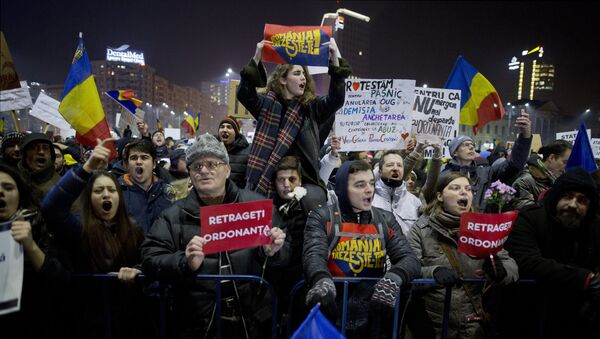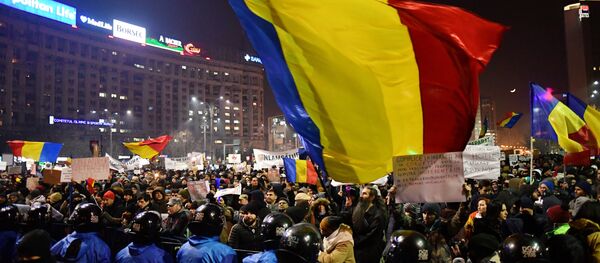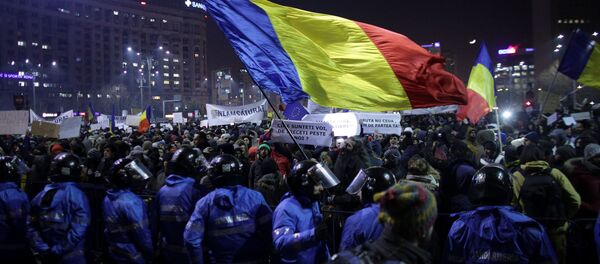Tens of thousands of demonstrators demanded Monday the resignation of the government and snap elections.
Drawing parallels between mass protests in 1989 and the ongoing turmoil in Romania Keno Verseck of Der Spiegel assumed that the people of Romania are "fed up" with political corruption and poverty.
"Contrary to [Romania's] political elites which often assume high positions and acquire riches by dishonest means, the rest of the country faces bitter social reality: Romania is the second-poorest EU member after Bulgaria; most of people live in precarious circumstances," Verseck writes.
The anti-government protests started on January 19 and gained momentum last week, with about 500,000 people taking to the streets across the country on Sunday, the journalist noted citing Romanian media.
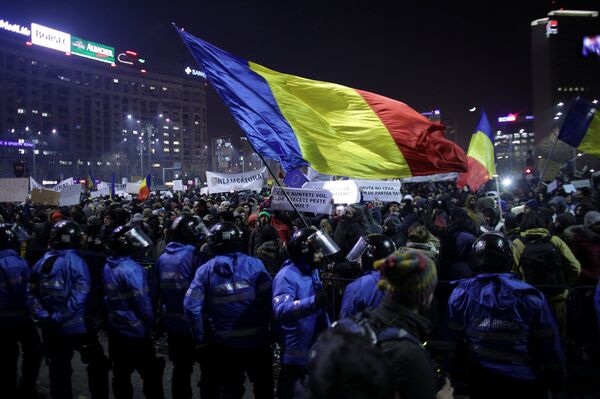
In his op-ed for RIA Novosti Russian political Andrey Veselov pointed out that the unrest began shortly after the parliamentary elections which resulted in the victory of the Social Democratic Party (PSD) over the opposition National Liberal Party (PNL).
However, the PSD's recent initiative to decriminalize "small-scale" abuse of power and corruption offenses by public officials has tipped the balance against the newly elected administration.
The decree in question envisaged decriminalizing cases of official misconduct in which the damages amounted to less than 200,000 lei (about $47,680 US)and providing pardons for those convicted to less than five years in prison.
"This is the largest protest [movement] since the end of the [Ceausescu] dictatorship in 1989. Romania's 'puppeteer' and de facto ruler Liviu Dragnea, the head of the Social Democratic Party (PSD), sees this as a conspiracy… In reality, it appears that the country's authorities underestimate the extent of the public outrage over corrupt politicians and officials," Verseck assumed.
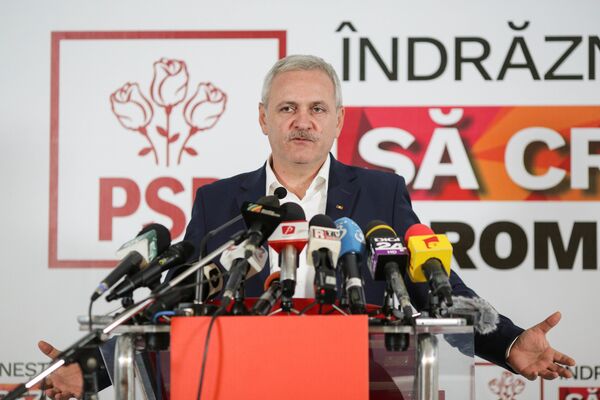
Speaking to a Romanian television broadcaster last week Dragnea called attention to the fact that the protests were "professionally organized."
"The scope, organization and funding of the demonstrations — I see that people came by buses, minibuses and trains, many people have been brought from other parts of the country — show that the protests are coordinated by professionals. This is not a spontaneous meeting, I mean, there is not only spontaneity," Dragnea said, as quoted by Romanian new agency Agerpres.
Dragnea admitted, however, that among the protesters there were people really upset with what is going on in the country.
In his interview with Russian newspaper Vzglyad Moldovan political analyst Vladimir Bukarski said that there are two major political forces in Romania and dubbed these groups "radical pro-Western" and "moderate pro-Western."
According to Bukarski, Romanian President Klaus Iohannis belongs to the first group and aligns himself with European bureaucracy. For its part, the newly elected administration is comprised by "moderate pro-Western" politicians.
Bukarski believes that the recent standoff is the reflection of the conflict between the President and the Parliament.
"The pro-Western faction headed by Iohannis is using the old good method of pro-Western forces — a color revolution," Bukarski assumed.
"The fight against corruption needs to be advanced, not undone. We are following the latest developments in Romania with great concern… The Commission warns against backtracking and will look thoroughly at the emergency ordinance on the Criminal Code and the Law on Pardons in this light," joint statement of EU President Jean-Claude Juncker and First Vice-President Timmermans, released on February 1, read.
Following the abolishment of the decree Juncker softened his rhetoric and suggested that the Romanian government has managed "to pull itself together," Vladimir Dobrovolsky of RIA Novosti pointed out Monday.
Meanwhile, speaking to lawmakers Tuesday Iohannis underscored that new elections were not the answer to the ongoing crisis.
"You have been saying in public that I would like to overthrow the legitimate government. That's false. You won, now you govern and legislate, but not at any price," Iohannis said, as quoted by Reuters.
"The resignation of a single minister is too little and early elections would at this stage be too much. This is the available room for maneuver," the Romanian President said in a reference to the resignation of Florin Jianu, Minister of Business, Trade and Entrepreneurship.
Never miss a story again — sign up to our Telegram channel and we'll keep you up to speed!
